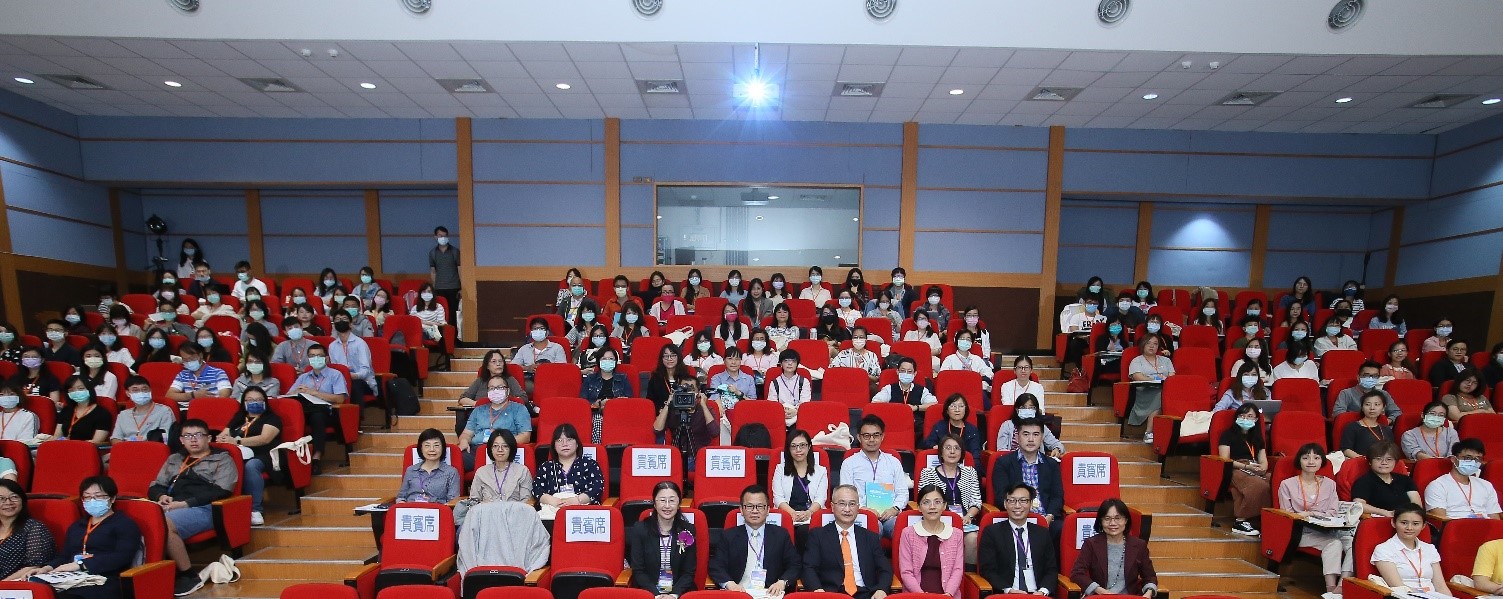The 2020 International Conference of Career Transitions for College Students with Disabilities Assisting students with their last mile through the cooperation of industries, academia and government agencies

From November 22 to 23, to enhance professional knowledge and abilities in career transitions of special education personnel and to be connected to the world, the Ministry of Education (MOE) organized the ‘2020 International Conference of Career Transitions for College Students with Disabilities’. The Director of the Department of Student Affairs and Special Education, MOE, Cheng Nai-Wen, expected that in this conference through the exchange of experiences with experts and scholars from the United States of America (USA), Japan, and Korea, innovative approaches would be stimulated to complete and enhance the quality of career transition support services for physically and mentally disabled students.
Due to the epidemic, special speeches from the foreign experts and scholars were changed into pre-recording and live-streaming, so that participants could conduct exchanges and interact with foreign experts and scholars. The career transitions and assistance were the main concepts of this conference, and special education experts and scholars were invited, including:
·Professor Debra Hart, Educational Coordinator of the Institute for Community Inclusion of the University of Massachusetts Boston,
·Professor Takeda, Kazunori, University of Tsukuba,
·Professor Cho Hong- Joong, Chonnam National University,
·Professor Ming Hung Wang, the Graduate Institute of Rehabilitation Counseling of National Changhua University of Education,
·and Associate Professor Chen-Ping Lin, the Graduate Institute of Counseling Psychology and Rehabilitation Counseling of National Kaohsiung Normal University.
Professor Debra Hart delivered a speech on the topic of ‘Higher Education Opportunities for Students with Cognitive and Developmental Disabilities in the United States of America,’ sharing that in addition to the traditional degree and education systems in the USA, physically and mentally disabled students can receive degree programs related to employment and support services (including self-empowerment, internships, and part-time jobs), through the means of non-degree and non-education systems, thereby effectively assisting students in smoothly finding employment in the future. Professor Takeda, Kazunori delivered a speech on the topic of ‘Current Status and Issues of Career Support for Physically and Mentally Disabled Students in Higher Education in Japan.’, sharing the actual status of universities providing employment support to physically and mentally disabled students. He took the University of Tsukuba as an example: this university provides employment support services for students with developmental disabilities, and organizes employment preparation lectures for students, so that students can think about the significance of work and be assisted in finding a suitable working method by simulating workplace experience. In addition, an exchange meeting between students and enterprises was also held to promote students’ internship opportunities in enterprises, and the online practical courses, ‘Access Blue Program’ (including techniques in information technology, business etiquette, and communication skills), was provided to assist physically and mentally disabled students utilizing what they had learned in their work. Professor Cho Hong- Joong suggested that universities should develop and establish employment support systems for physically and mentally disabled students, organize employment support teams for the aforementioned students, establish career guidance systems to provide pre-service education and, lastly, collect employment information, so as to strategically enhance students’ employment competitiveness.
Associate Professor Chen-Ping Lin, shared the ‘Pilot Program of Career Transitions of Physically and Mentally Disabled Students in Universities and Colleges’, the promotion modes of each pilot school and the difficulties encountered in these promotions. She suggested that universities and colleges could conceive the cooperation model of relevant units in schools, and enhance communication between parents and students to jointly promote effective career transition activities. Professor Ming Hung Wang from the National Changhua University of Education, viewed the current status and challenges of vocational rehabilitation services for physically and mentally disabled students in universities and colleges from the aspect of vocational rehabilitation. He considered that for physically and mentally disabled students, employment is a learning process, which requires a certain motivation, while support services of career explorations and selections, pre-employment preparations, employment referrals, interview assistances, and workplace support can provide systematic assistance.
The roundtable forum in this conference invited experts and scholars, including Emeritus Professor Hsin-Tai Lin, Professor Ming Hung Wang, and Associate Professor Chen-Ping Lin, to conduct discussions and exchanges with Tsao, Tsau-Ying, the Deputy Director of Student Affairs and Special Education of the Ministry of Education, Tang,Chang-Hao, the Section Chief of Workforce Development Agency of the Ministry of Labor, and Chen Chih-Ju Inspector of Social and Family Affairs Administration Ministry of Health and Welfare, with the expectation that government agencies, the private sector and schools could cooperate to assist physically and mentally disabled students to successfully enter the workplace after their graduation.